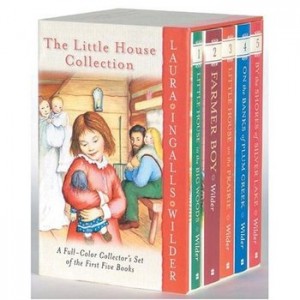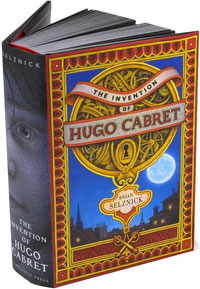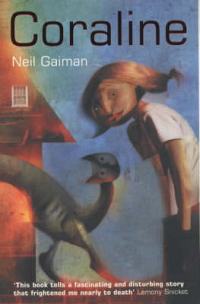Random thoughts on the Little House books
 My mother read us the Little House books when my family drove across the country. We drove from New York to California, tent-camping all the way, the summer before I entered 7th grade, and these stories about another westward-moving family were a wonderful accompaniment. Those were the days before iPods or portable dvd-players (or even dvd’s, truth be told). We were in it together.
My mother read us the Little House books when my family drove across the country. We drove from New York to California, tent-camping all the way, the summer before I entered 7th grade, and these stories about another westward-moving family were a wonderful accompaniment. Those were the days before iPods or portable dvd-players (or even dvd’s, truth be told). We were in it together.
Now my daughters and I have gone through them all — all the books for children, that is. The First Four Years we’ll save for when the girls are older.
Some random thoughts, revisiting the books as an adult:
*It’s so striking, the happy, optimistic ending of These Happy Golden Years. Knowing the hardship of the life that followed, and the distance that eventually separated Laura and Almanzo from their families, gives it a bittersweet feel.
*Growing up with Laura. From the Big Woods all the way to Almanzo’s tree claim, we’ve watched a little girl mature. I felt that Laura’s courtship and marriage gave my girls a way of imagining themselves one day as young ladies. I loved hearing their opinions and interpretations along the way. And I especially hoped they noticed how much both Pa and Almanzo seemed to care about providing for their wives’ needs, and how much respect both couples radiated.
*Race. The books give an honest insight into their age. For instance, Pa seems open-minded about the Indians — even though he does take part in their displacement, and even squats on Osage land in Little House on the Prairie. But Ma, along with Mr. and Mrs. Scott, are as anti-Indian as can be, utterly racist in their views. Then in Little Town on the Prairie Pa performs in a minstrel show for one of the town sociables in a parody of “darkies.” It seems racially degrading, but I’d have a hard time believing it’s intentionally so. Later in life, Laura writes in her newspaper column against a racist or provincial attitude. So there are different levels of awareness running through the age — and through the books.
*Almanzo is willing to risk his life for wheat for the town-dwellers in The Long Winter. He makes a heroic trip with Cap Garland and persuades a settler to sell his seed wheat for the starving women and children of DeSmet. Yet Almanzo himself has a big supply of seed wheat that he hides and refuses to sell. ?
*A few weeks ago my hairdresser was talking about Laura Ingalls Wilder with my daughters, and she told them that if Laura were alive today she would be “green.” How would Laura feel about being put in that category? I don’t sense any of the agrarian nostalgia in Laura that I (and other readers) are tempted to feel when we read her books. She and Pa both seem to see the railroad, and the idea of Progress, as glamorous. And Pa isn’t only a farmer, but a jack-of-all-trades (and master of most).
*Last but not least, a word on my ongoing discussion (with myself, even if no one else is interested!) about audiobooks: We read the first half of These Happy Golden Years aloud, at a fairly slow pace. Then we listened to the last half via audiobook in the car. There were things I liked better about doing the reading myself; the girls obviously had the story on their minds more, and asked more questions, and thought things through more. On the other hand, I like the audiobooks, which include occasional accents from the fiddle, and include the tunes of songs Pa sang. Besides that, they carried on long past the point where I would have gotten carsick or sleepy.
I like both approaches to the books, for different reasons. I’ve given some thought to the reservations I’ve had about audiobooks. It does bother me that my oldest is not quicker to pick up a book and work at it; she’d rather multitask, and listen to a story while doing something hands-on. I’ve wondered if I’ve allowed too many audiobooks, and made her lazy about the more skill-dependent process of reading.
However, it occurs to me that she is a hands-on person, with or without audiobooks. When I stop and think about it, I’m not sure she’d be any quicker to pick up a book in a silent house than in a house forever breathing stories. But with audiobooks, she has the opportunity to be exposed to much more literature, many more instances of the rhythms of written speech, and many more imaginative furnishings of her mind than she would have in a house silent except for when I’m reading aloud. Like anything else, there are pros and cons, and excesses to be avoided. But on the whole I think audiobooks are a good thing.
And Cherry Jones does an excellent job with the Little House books, too — even though I can’t keep from picturing her as the U.S. President, as she was in 24 last season.


